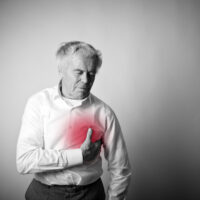Symptoms and causes of hyperhidrosis
Hyperhidrosis is a condition that causes excessive sweating in one or many parts of the body. The symptoms of this condition can get severe to the point where one may need a frequent change of clothes. For some people, this condition can trigger serious psychological problems like anxiety and depression.

It is therefore essential to understand what causes hyperhidrosis and its symptoms.
Symptoms of hyperhidrosis
The common symptoms of hyperhidrosis are mentioned below:
- Excessive sweating
This is the most common symptom associated with hyperhidrosis. A person may sweat excessively to the point where their clothes get soaked up. There is no apparent reason for excessive sweating, which can even disrupt one’s daily activities. Those with this condition may spend a large amount of time each day changing sweat-soaked clothes, wiping and placing napkins or pads under the arms, and wearing loose or dark clothes. - Body odor
When a person perspires excessively, and the sweat mixes with the bacteria on one’s skin, it can cause body odor. - Skin problems
Hyperhidrosis can trigger a variety of skin problems. Bacterial skin infections, cracks or wrinkles, skin paleness, and discoloration are a few skin problems caused by the condition. Another symptom of hyperhidrosis is maceration, which is usually seen on the soles of the feet. It is caused when excessive amounts of fluid, such as sweat, remains in contact with the skin for a long time. - Inflammation and itching
Excessive sweating can cause certain problems. A few symptoms that point toward hyperhidrosis are excessive itching, pain, irritation, or skin inflammation. - Social problems
Sweating caused by hyperhidrosis is noticeable. This tends to make some people feel anxious, embarrassed, and very self-conscious. Some refrain from any form of physical contact and social interaction, which may lead to depression.
Causes of hyperhidrosis
When a person’s sweat glands work overtime, they lead to excessive sweating. This is usually caused by the following:
- Psychological problems
Psychological issues such as anxiety, mental stress, and nervousness can trigger excessive sweating. - Genes
A family history of hyperhidrosis increases one’s likelihood of getting the condition. Several people with hyperhidrosis are likely to have a parent or sibling with the same problem. - Metabolic diseases
Certain metabolic conditions, such as diabetes, gout, and pituitary diseases, can cause excessive sweating. - External factors
Exercising, spending too much time in a hot area, or drinking alcohol can trigger the symptoms of hyperhidrosis. - Other diseases and injuries
Heart diseases, cancer, consumption of certain prescription medication, and respiratory diseases can cause hyperhidrosis.
Disclaimer:
The content provided on our blog site traverses numerous categories, offering readers valuable and practical information. Readers can use the editorial team’s research and data to gain more insights into their topics of interest. However, they are requested not to treat the articles as conclusive. The website team cannot be held responsible for differences in data or inaccuracies found across other platforms. Please also note that the site might also miss out on various schemes and offers available that the readers may find more beneficial than the ones we cover.











